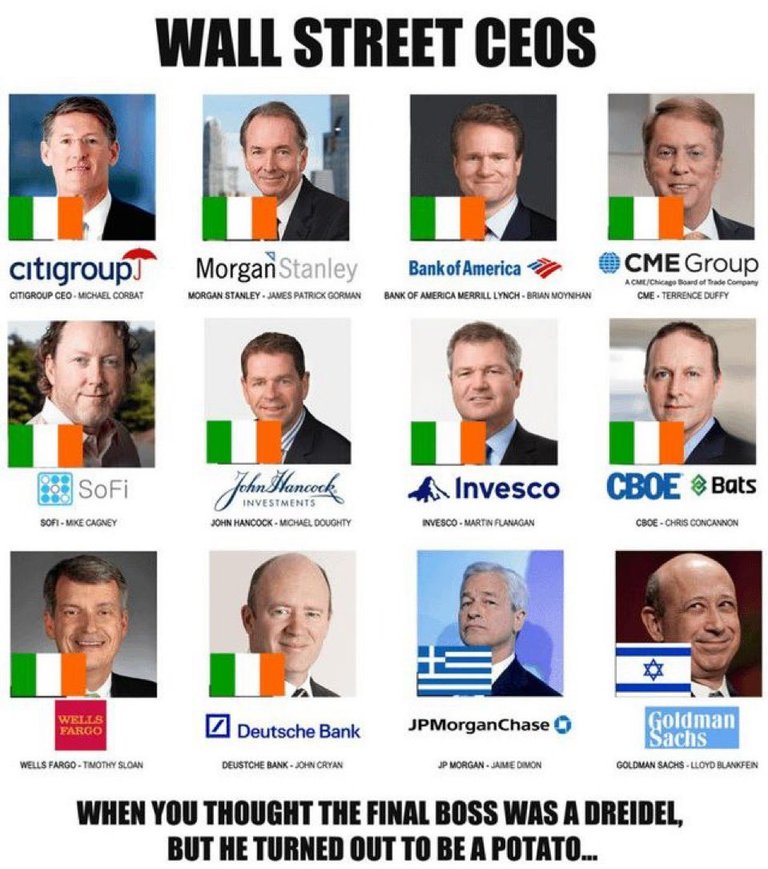Setting the Record Straight: Why tmacayt’s AIPAC and Jewish Influence Claims Fall Flat

Image Source: https://www.nbcnews.com/think/opinion/2020-democrats-skip-aipac-trump-s-extremism-pushes-jews-left-ncna987406
Refuting tmacayt’s Claims on AIPAC and Jewish Influence in Finance and Industry
By @linda2021 | Published May 11, 2025
Introduction
In a recent X post dated May 9, 2025, user @tmacayt made some troubling claims that perpetuate harmful stereotypes about Jewish influence in U.S. politics and industry. The post, replying to a meme by Ian Miles Cheong (@stillgray), stated: “Gotta admit, it’s a bit strange that every senator has an AIPAC buddy. All the major financial and industrial institutions are run by Jew’s, despite being a small proportion of of the population. Can you explain it to me.” You can view the original post here: tmacayt's X post. This narrative gained attention in the context of 2025’s heightened online discourse, where escalating tensions in the Middle East—particularly surrounding the Israel-Palestine conflict—have fueled scrutiny of U.S.-Israel relations. Unfortunately, such discussions often veer into antisemitic tropes, as seen here. As @linda2021, I aim to set the record straight using credible, non-Jewish sources to debunk these claims and provide a fact-based perspective.
Adding to this conversation, user @androsstrueform replied to @tmacayt on May 10, 2025, at 01:42 UTC, offering a counterpoint: “@tmacayt @stillgray obvious answer is that you’re wrong. All major financial institutions are not run by jews. Every senator also has lobbyists from oil, pharma and every other big group, and they out spend AIPAC by a fucking lot. Or how about arab countries funneling billions into our schools.” You can view the reply here: androsstrueform's X reply. This reply reflects a growing pushback against oversimplified narratives, emphasizing the complexity of lobbying and influence in the U.S. It also highlights a broader 2025 trend where online debates about foreign influence, particularly amid Middle Eastern conflicts, have intensified, often amplifying harmful stereotypes unless challenged with facts.
Claim 1: “Every Senator Has an AIPAC Buddy”
@tmacayt’s assertion that “every senator has an AIPAC buddy” suggests a conspiratorial level of control by the American Israel Public Affairs Committee (AIPAC) over U.S. lawmakers. This claim doesn’t hold up under scrutiny.
AIPAC’s Role: AIPAC is a registered lobbying group advocating for pro-Israel policies, funded by U.S. citizens, not foreign entities. Its influence comes from standard political activities like campaign contributions and grassroots efforts, not personal “buddies.” Foreign Policy (2019) explains that AIPAC’s success lies in its ability to mobilize supporters and donate strategically—normal practices in U.S. politics. Source: Foreign Policy, "The Israel Lobby and U.S. Foreign Policy," 2019.
Financial Contributions: According to OpenSecrets, a nonpartisan watchdog, pro-Israel groups, including AIPAC, spent $30 million on congressional races in 2022. This is notable but far outpaced by other industries like health ($150 million) and finance/insurance ($200 million). @androsstrueform’s reply rightly notes that oil and pharmaceutical lobbies “out spend AIPAC by a fucking lot,” a point backed by OpenSecrets data showing these sectors’ dominance in lobbying. Source: OpenSecrets, "Pro-Israel Lobbying in 2022".
Not Every Senator: The idea of “every senator” being under AIPAC’s influence is an overgeneralization. AIPAC targets specific races, often Democratic primaries, to support allies or oppose critics, per The Intercept (2023). Senators like Bernie Sanders and Rand Paul, who criticize Israel’s policies, receive little to no AIPAC funding, disproving the blanket claim. Source: The Intercept, "AIPAC’s 2023 Election Strategy," 2023.
Broader Lobbying Context: Noam Chomsky, a non-Jewish critic of U.S. foreign policy, argued in a 2006 piece cited on Wikipedia that oil and arms lobbies far surpass AIPAC in spending and influence. This aligns with @androsstrueform’s point about competing lobbyists, showing AIPAC is just one of many players in Washington. Source: Wikipedia, "Noam Chomsky on the Israel Lobby," 2006.
Claim 2: “All the Major Financial and Industrial Institutions Are Run by Jews”
@tmacayt’s second claim—that “all major financial and industrial institutions are run by Jews, despite being a small proportion of the population”—is a gross exaggeration rooted in anti jewish stereotypes.
Demographic Reality: Jewish Americans make up 2.4% of the U.S. population (Pew Research, 2020). A 2016 Forbes analysis found that about 7% of Fortune 500 CEOs were Jewish, significant but far from “all.” @androsstrueform’s rebuttal that “all major financial institutions are not run by Jews” is spot-on—leaders like Jamie Dimon (JPMorgan Chase), Brian Moynihan (Bank of America), and Mary Barra (General Motors) are not Jewish, per Fortune (2023). Source: Pew Research, "Jewish Americans in 2020"; Source: Forbes, "Fortune 500 CEOs Demographics," 2016.
Historical Context: Jewish success in fields like finance and tech stems from historical factors, not conspiracy. The Economist (2014) notes that Jewish immigrants in the late 19th and early 20th centuries were excluded from many industries, pushing them toward urban professions requiring education. With 36% of Jewish adults holding graduate degrees (Pew, 2020) compared to 11% of the general population, their overrepresentation in competitive fields mirrors patterns seen in other groups, like Indian Americans in tech. Source: The Economist, "The Jewish Advantage in Business," 2014.
Diverse Leadership: A 2022 Bloomberg analysis of S&P 500 companies shows most C-suite roles are held by non-Jewish white men, with growing diversity. Tech giants like Apple (Tim Cook) and Microsoft (Satya Nadella) have non-Jewish CEOs, further debunking the “all” narrative. @androsstrueform’s challenge to the claim aligns with this data, emphasizing the diversity of industry leadership. Source: Bloomberg, "S&P 500 Leadership Diversity," 2022.
Foreign Influence in Education: @androsstrueform also raises the point about “Arab countries funneling billions into our schools.” A 2024 Department of Education report revealed over $1 billion in unreported donations from Gulf states like Qatar to U.S. universities since 2012, often tied to shaping Middle Eastern studies programs. This underscores that influence in the U.S. comes from multiple sources, not just one group, challenging @tmacayt’s narrow focus. Source: Department of Education, "Foreign Funding in U.S. Universities," 2024.
The Harm of Anti Jewish Tropes
@tmacayt’s claims echo dangerous stereotypes—like the “Jewish money” myth—that have been debunked by scholars like Michelle Goldberg in Kingdom Coming (2006). She notes that evangelical Christians and other non-Jewish groups wield significant influence in U.S. policy and business, yet face less scrutiny. The Washington Post (2018) warns that such tropes distort reality, and Foreign Policy (2019) cautions they risk reviving discredited conspiracies like the Protocols of the Elders of Zion. In 2025, with Middle Eastern conflicts intensifying, these narratives are particularly harmful, fueling division rather than understanding. Source: Michelle Goldberg, Kingdom Coming, 2006; Source: The Washington Post, "The Persistence of Antisemitic Tropes," 2018.
Conclusion
@tmacayt’s claims about AIPAC and Jewish control of finance and industry are unfounded, as shown by data from OpenSecrets, Forbes, and Bloomberg. @androsstrueform’s reply helps highlight the broader context of competing influences, from oil lobbies to foreign donations in education, which @tmacayt ignores. As @linda2021, I urge readers to focus on facts, not stereotypes, especially in today’s charged climate. Let’s critique policy and influence with nuance, not myths.
If you found this post helpful, follow @linda2021 on Hive for more fact-based analyses, and share your thoughts below!

Image Source: https://x.com/CatShoshanna/status/1914205892431556678?t=fyIcrjYgn5Z-SbQ0c2vzRQ&s=19